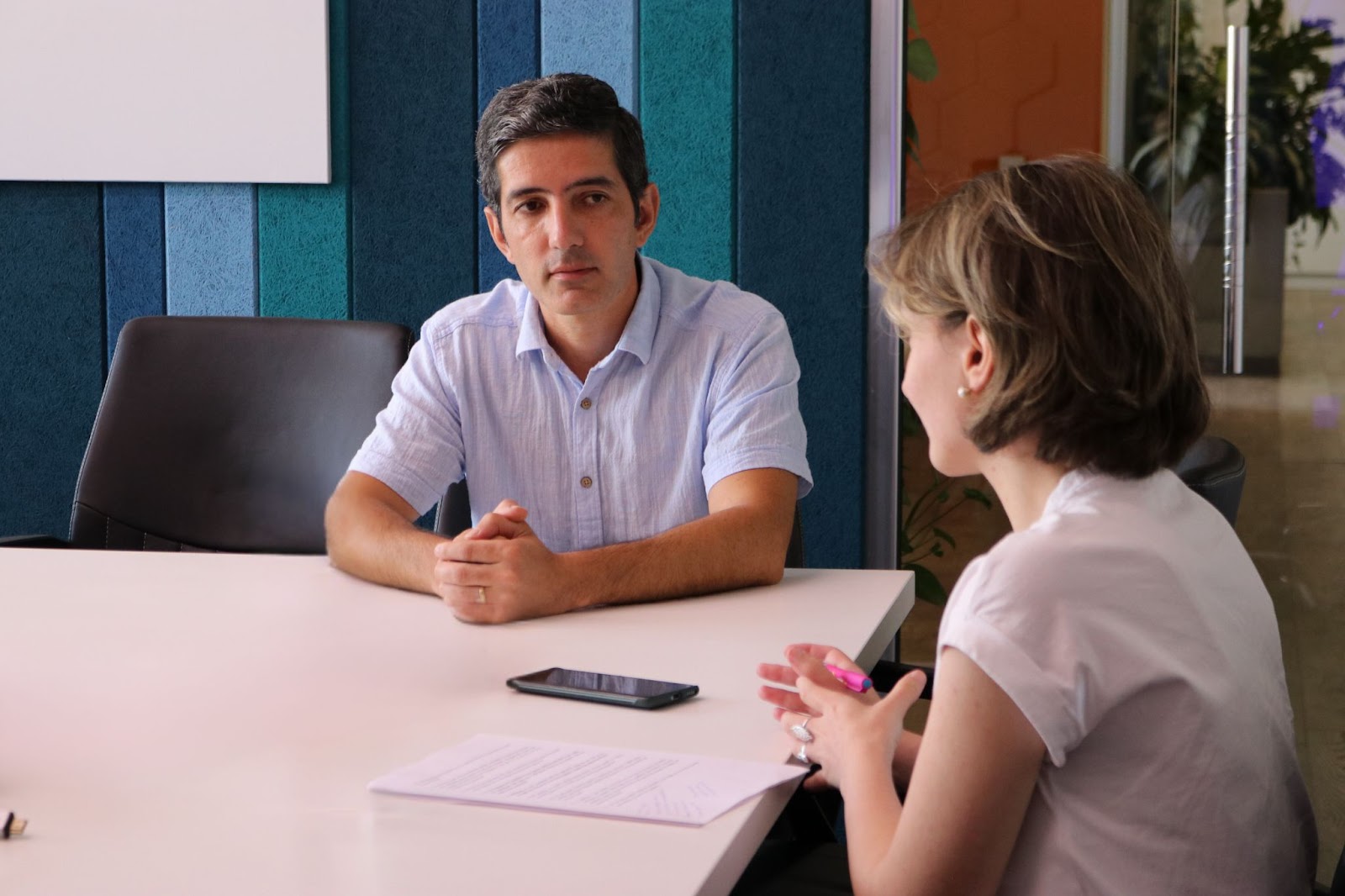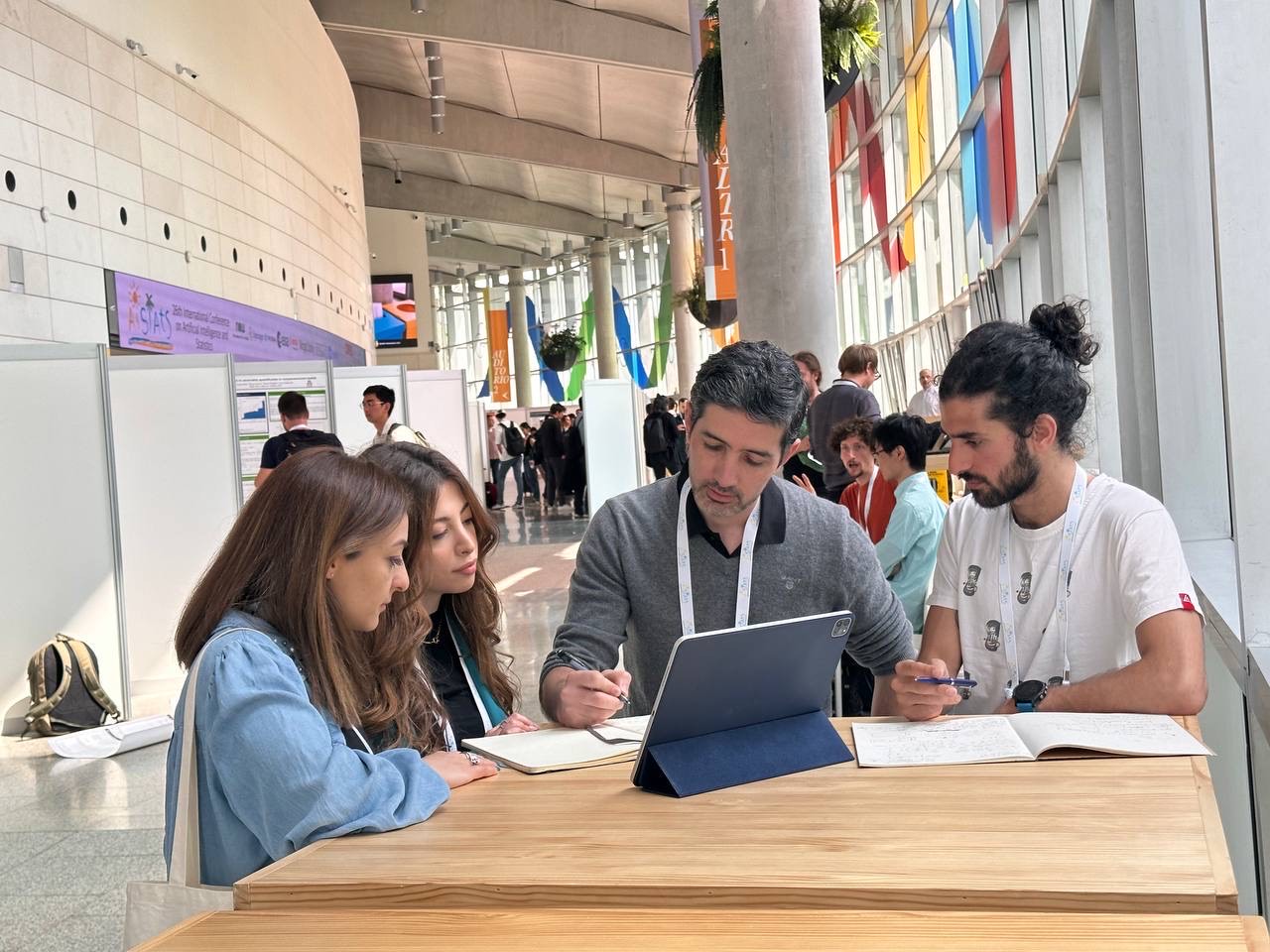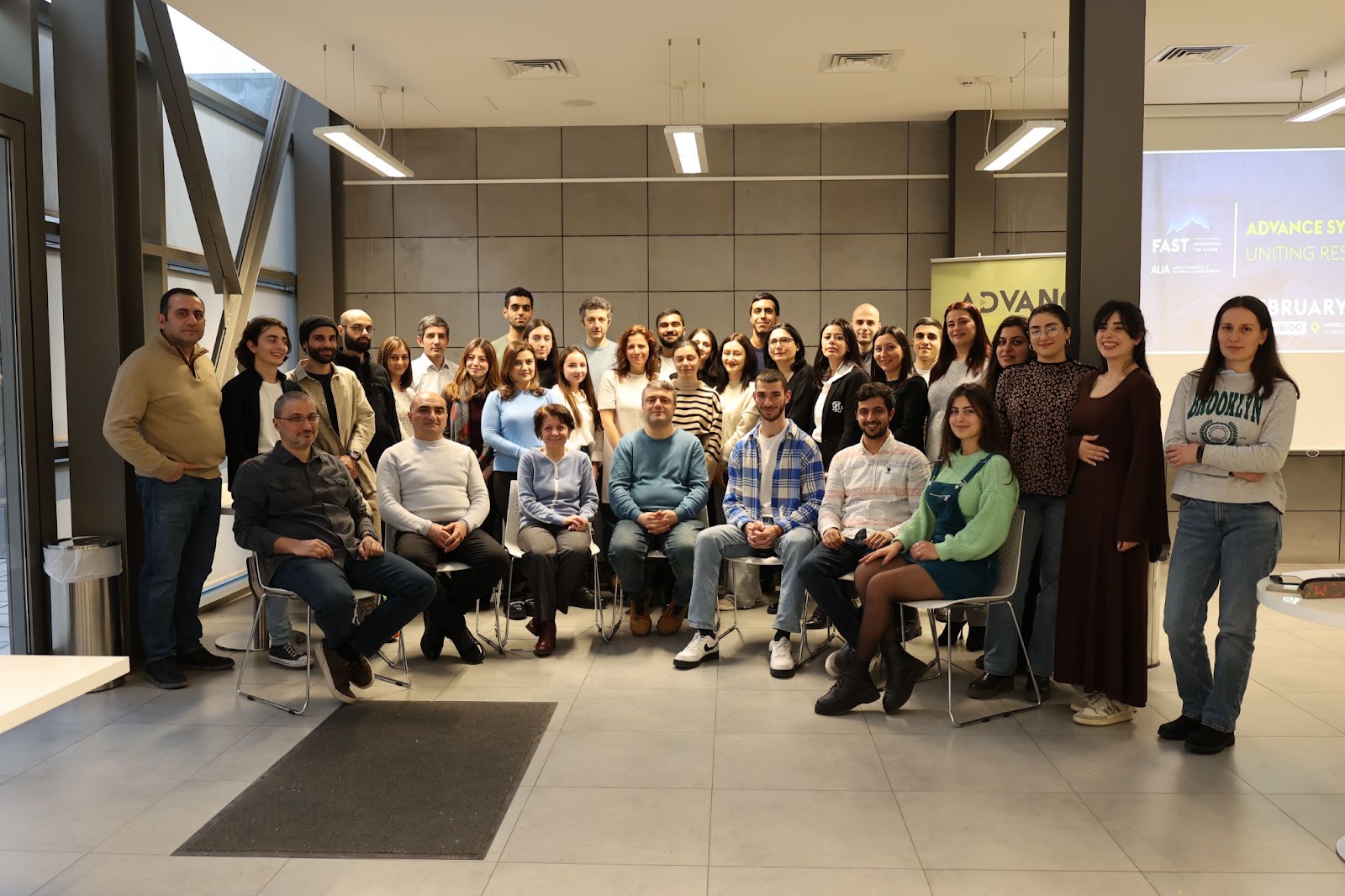Բլոգի հայերեն տարբերակը կարդա այստեղ:
Marking a milestone in Armenia's first National Science Week, FAST's ADVANCE Research Grants celebrated the successful completion of one of its nine projects, Machine Learning (ML).
...
Launched in 2020 during the COVID-19 pandemic, the Machine Learning project served as an early example of the ADVANCE's unique approach to research funding in Armenia. Four years later, the project team concludes its journey as a highly skilled and established research group specializing in machine learning. The project's accomplishments encompass five scientific publications on advanced topics such as Matching Feature Vectors in the Presence of Noise and Outliers and Generative Adversarial Networks (GANs). Three of these publications were featured in top-tier Q1 journals with high impact factors. Moreover, the project facilitated accredited and non-formal courses at Yerevan State University and achieved several other notable milestones.
...
- What is the significance of machine learning in today's world?
- What were the key achievements of the four-year "Machine Learning" project?
- What has been the success of the ADVANCE program's format։ Strengths and limitations
- Between Armenia and France: Why give back to your country?
We dove into these insights with Arnak Dalalyan, the Principal Investigator of the "Machine Learning" Research Project (2020–2024), a Professor of Statistics at ENSAE, Institut Polytechnique de Paris, the Director of the Center for Research in Economics and Statistics (CREST), and a member of the Advisory Board for the Generation AI High School Project.

Interview with Arnak Dalalyan
FAST Forward: How a Student’s Insight Became the Start of a Long Journey
I first heard about FAST in 2017. In France and throughout the Western academic sphere, the practice of sabbatical semester is well-established. Typically granted every 5 to 6 years, this allows professors to take a semester off from teaching and to conduct other academic work, often at a foreign institution.
I seized the opportunity to come to Armenia while teaching at the American University of Armenia and supervising students' thesis projects. In a conversation with one of my students, Tatev, I learned that she was involved in a new and exciting initiative that would later become FAST, and I eventually became involved as well.
Arnak Dalalyan's Journey with FAST
The Buzz Around Machine Learning in Armenia: The Story Behind the ADVANCE Project
Since 2015, during each visit to Armenia, I’ve consistently heard from my local colleagues about the growing interest in machine learning among students. However, at that time, the subject wasn’t widely taught at universities, or it was offered within very few hours. To address this gap, I started organizing open classes during the summers. With each visit, I delivered three to four lectures, witnessing the growing interest in the field.
My first lecture at the American University in 2015 filled the largest auditorium, with many attendees standing or unable to gain entry. By 2017, a clear enthusiasm for specializing in machine learning emerged among students, yet they lacked the crucial guidance of a dedicated research advisor.
At the same time, discussions were underway at FAST for a program called ADVANCE, designed to propel scientific advancement in Armenia. It aimed to foster research, particularly in innovative fields like machine learning. Despite the challenges posed by the COVID-19 pandemic, I took the initiative to submit my candidacy and assume the leadership of the research team in this area.
AI: Creation or Imitation? Exploring the Challenges Faced by the Projects
Differentiating between creation and imitation is a complex issue that we explored in our study on generative models.
True innovation often arises from novel combinations of existing ideas. However, in the context of AI, current machine learning methods lack a crucial mechanism: the ability to determine whether similar combinations have been explored previously. This limitation significantly hinders AI models. Without a framework for assessing originality, they struggle to generate truly unique combinations, ultimately diminishing the perceived novelty of their outputs.
Despite numerous articles exploring the originality or authenticity of creative work each year, a universally accepted standard remains elusive.
Our research aimed to adapt existing successful methods by incorporating the crucial missing component: the ability to assess prior combinations. While this approach may not be revolutionary, the distinct operational characteristics of our tested methods are significant and have the potential to generate considerable interest within the scientific community.
What are the key accomplishments of the project?
My greatest reward has been witnessing the professional growth of young individuals, both within the scientific community and beyond.
Over the past four years, two members of our team, Tigran Galstyan and Arshak Minasyan, have defended their PhD theses in machine learning. Elena Vardanyan and Vahan Arsenyan have also become involved in scientific research and decided to continue their journey in this field after completing their master’s degrees, showing their strong commitment to an academic career. Meanwhile, Sona Hunanian has made the exciting decision to return to Armenia after several years in Switzerland to join the program, and she’s now actively contributing to the local ML scene.
Some of our students, after completing their coursework, workshops, and thesis projects, have transitioned to careers outside science. However, I firmly believe that their research experience has provided them with invaluable skills and knowledge that will undoubtedly benefit them throughout their professional lives.
There is a global demand for machine learning specialists worldwide, particularly acute in Armenia. The emergence of young scientists in this field is therefore a significant development. These individuals bring deep expertise, international research experience, and the ability to share cutting-edge innovations with others. Their contributions not only elevate the quality of local educational programs but also expand their reach, fostering a new generation of talent in this critical area.

Machine Learning project team
Top 3 Machine Learning Trends: What Researchers are Working on Now
1. Large language models
These have made significant strides in recent years, yet many aspects remain scientifically uncharted. These models are computationally expensive, requiring substantial resources, including GPUs, which are both costly and energy-intensive. A crucial question facing researchers today is whether comparable performance can be achieved with more efficient and less resource-demanding models.
2. Data Scarcity
Successful machine learning methods depend on large datasets that enable high model performance. However, in fields like medicine, data availability can be limited, constraining advancements in areas like the development of cancer treatment. This underscores the need for machine learning approaches that can achieve high performance even with limited data.
3. Unsolved Mathematical Problems
Mathematics plays a crucial role in machine learning, and several fundamental questions within this discipline remain unanswered, impeding further progress. Addressing these challenges is of paramount importance.
Lessons Learned: What Has Been the Success of the ADVANCE Format
Before designing the ADVANCE program, we engaged in discussions at the FAST office to analyze successful international models for advancing scientific research, drawing inspiration for our own implementation. One such program, the Russian Foundation for Basic Research, provided valuable insights. I shared my knowledge of this program with the Foundation’s team. While
I believe the current ADVANCE format is effective, exploring new avenues, such as incorporating undergraduate-level initiatives, could further enhance its impact.
Strengths:
- Direct connections between newly graduated master's students and established researchers at leading international universities provide strong motivation, inspiring these scholars to engage with and mentor young researchers in Armenia.
- Regular, structured meetings between team members and PIs facilitate effective and ongoing collaboration.
- ADVANCE stands out from other programs I've been involved with in Armenia through its logistical coordination. From conference participation to arranging PI’s and researchers’ visits, all matters are handled swiftly and efficiently.
Limitations:
-Disproportionate Competition with the Private Sector
In Armenia today, young individuals with strong academic credentials and potential for scientific careers are often drawn to immediate employment opportunities in the private sector due to financial considerations. Addressing this requires a multi-pronged approach. By providing a robust scientific education to a wider segment of the population, we can increase the overall pool of skilled individuals. This, in turn, can mitigate the pressure on individual researchers while ensuring a consistent supply of talent for the scientific sector.
- The Importance of Long-Term Vision and Continuity
The four-year program duration provides an appropriate timeframe for in-depth research without exceeding necessary timelines. However, attracting and retaining talent in scientific pursuits requires a long-term vision and clearly defined career pathways, a significant gap in Armenia's current scientific landscape. In contrast, established scientific ecosystems like those in the EU and the US offer well-defined career trajectories, from doctoral studies to faculty positions, providing a clear roadmap for professional growth, including advancements in salary, job quality, and access to enhanced educational and support systems. Such a clear and predictable career trajectory is currently lacking in Armenia.

ADVANCE researchers
Armenia and France: The Importance of Our Connection
Although I have been working in Paris for 25 years, the thought that dominates my mind remains unchanged from the day I first arrived in France: while my heart belongs to Armenia, I was sent here on a mission to establish myself as a specialist and researcher. My connection to Armenia has deepened over the years, and I remain committed to contributing to the advancement of education in my homeland whenever the opportunity arises.
It's crucial to acknowledge that my achievements are deeply rooted in my Armenian educational foundation. From kindergarten to university, the education I received is a direct reflection of the investments my country made in me.
The free education we received represents a collective societal investment, built upon the hard work and resources of our fellow citizens. As beneficiaries of this investment, we have a responsibility to contribute to the betterment of society in some meaningful way.
Some compatriots critically assess the quality of education received in their homeland. While acknowledging areas for improvement, it's important to recognize that our own successes are a testament to the system's strengths. This underscores the importance of acknowledging the positive aspects and considering how to contribute back to the system that nurtured our own growth.
Starting 2025, FAST's ADVANCE Research Grants will continue under the administration of the Higher Education and Science Committee!
...
Spread the Word! If you found this blog interesting, share it with others! We post about the latest academic, technological, and innovative stories from industry experts.
Բլոգի հայերեն տարբերակը կարդա այստեղ:






